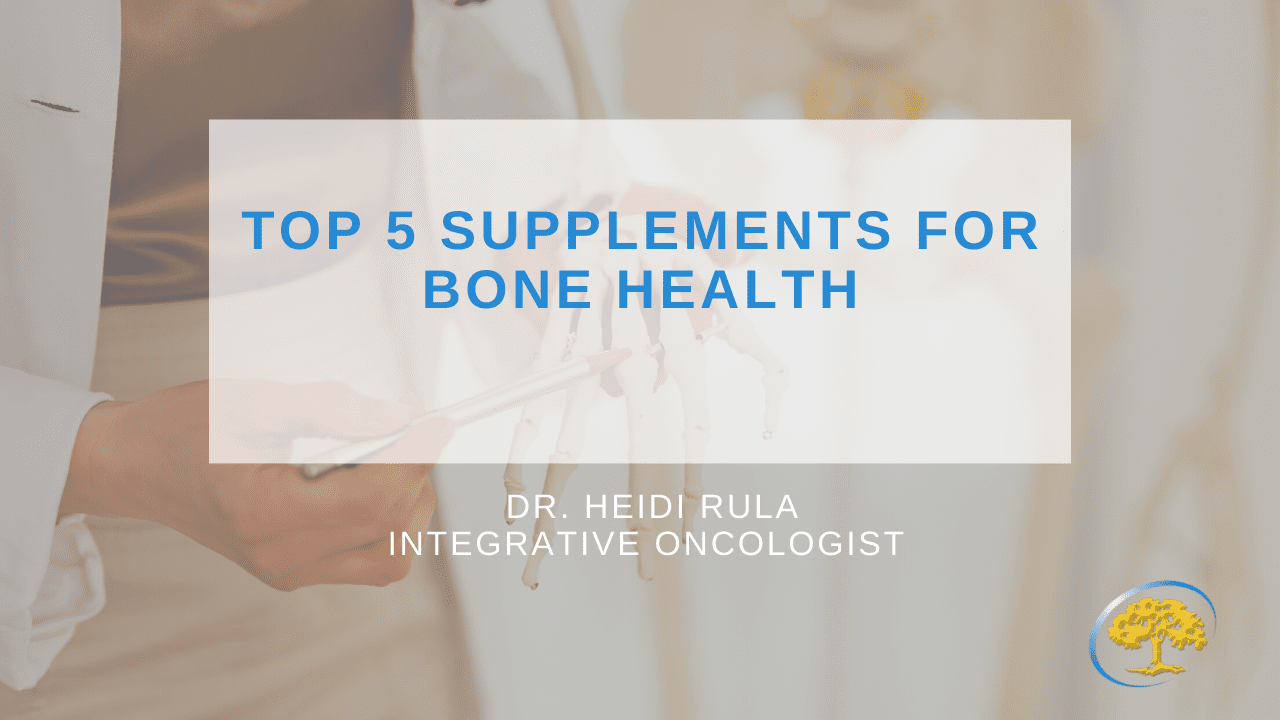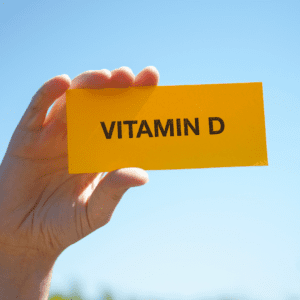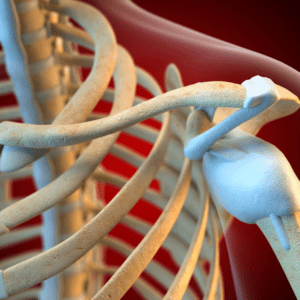
Posted 3 years ago
Top 5 supplements for bone health
You may have never considered how important your bone health is unless you are one of the millions of Americans that have been diagnosed with osteoporosis. Osteoporosis is a disease that will affect 1 out 3 women and 1 out of 5 men, after the age of 50. Maintaining healthy bone mass is an important component of healthy aging.
Osteoporosis is a condition where bones become weak and brittle over time putting a person at risk for fractures. If you have osteoporosis even a simple fall could lead to a hip fracture or a hard cough lead to a vertebral fracture. Not only are these fractures painful and debilitating but they may be life threatening. In fact, older adults who experience a hip fracture have a 3-4 times greater risk of dying within 12 months then the general population.
The supplement market is loaded with supplements that claim to improve your bone density. It goes without saying that bone health is more than just taking the right supplement, diet and exercise are also very important, but these are the top 5 supplements that have some good evidence to improve bone density.
#1 Calcium
Calcium is the most abundant minerals in the body. It plays a major role in bone density. It is recommended that adults take in a total of 1,000 to 1,500 mg of calcium daily, this includes both food and supplement sources, to maintain healthy bones. Most people get at least 500-600 mg of calcium in their diet a day, so it is generally recommended to get the other 500 to 1000mg in the form of a supplement. You should take a maximum of 500mg at a time , because this is the maximum amount that can be absorbed in one serving. Calcium comes in many different forms, the most common being calcium carbonate (same calcium that is in a Tums) or Calcium Citrate. Calcium citrate can be absorbed with or without food where calcium carbonate needs to be taken with food to maximize absorption.

Vitamin D is a fat-soluble vitamin that you can think of as a conductor that directs calcium to the bones. Without adequate vitamin D your body does not know to deposit calcium into the bone and so even high intake of calcium can lead to a progressive thinning of bone density. I generally recommend supplementing with vitamin D in the form of D3 at the dose of 1,000 to 5,000 IU based upon lab results. Ideally you should get your 25-OH Vitamin D level checked and shoot for a goal of 40-70 ng/ml.
#3 Magnesium
Magnesium is the second most common mineral in the body. It also is an important building block for bone strength. It is generally recommended that adults take a supplement of 250-400mg daily. Magnesium glycinate or magnesium gluconate at the best absorbed and are less likely to have the laxative effect that occurs with magnesium oxide or magnesium citrate.
#4 Vitamin K
Vitamin K is another fat soluble vitamin that partners with Vitamin D for bone health. Vitamin K comes in two forms, K1 and K2. K2 has the most evidence that taking it as a supplement will improve bone density. I generally recommend supplementing with Vitamin K2 with a dosage of 45 to 180 mcg daily.
#5 Isoflavones
Isoflavones are biologically active compounds found in beans, especially soybeans. Ipraflavone is one of the semi-synthetic flavones available as a supplement. Studies have shown that taking a dosage of 200mg a day improved the bone density of elderly women with osteoporosis. It showed the greatest benefit when taken with adequate daily calcium.
SUPPLEMENT TO AVOID:
I caution my patients to avoid supplements that contain strontium. Strontium is a heavy metal that is commonly seen in bone health supplements. Although it can improve the results of your bone density test – it has been shown that this is mainly a false increase. Strontium replaces calcium in the bone and makes the bone look denser than it really is on the DEXA scan. The form of strontium, strontium citrate, that is being used in the U.S. has not been well studied. In Europe strontium ranelate was approved for the treatment of osteoporosis but this recommendation was later revoked with the findings that strontium supplementation can increase the risk of heart attacks and blood clots.
Bone health is an important component of overall health. Adding key supplements to a healthy diet and exercise program can optimize your chances of maintain a healthy bone density throughout the course of your life.
About Heidi Rula, M.D.
Medical Director of the Supportive Care Services Department
Dr. Heidi Rula Joined Ironwood In 2018 To Launch The Integrative Oncology Program. She Is Board Certified In Family Medicine And Fellowship-Trained In Integrative Medicine. Dr. Rula Has Been A Practicing Physician In The Phoenix Area For Approximately 20 Years And Has Been Recognized By Her Colleagues As One Of Phoenix’s “Top Doctors” On Multiple Occasions.
Dr. Rula has played a key role in bringing integrative medicine to the Valley. She served as the medical director of the University of Arizona Integrative Health Center, where she leads a team of physicians and complementary practitioners in a unique model of integrative primary care that she helped to develop along with Dr. Weil and the UA Center for Integrative Medicine.
Provider Profile & CV


 About
About